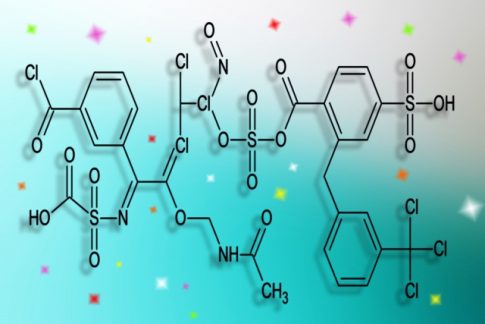Introduction
For many men who suffer from thinning hair, AGA (androgenetic alopecia) is an unavoidable problem. Genetic factors play a large role in AGA, and family history influences the risk of developing it. This article provides a detailed explanation of the genetic background and influence of family history of AGA, and also introduces effective countermeasures.
What is AGA?
AGA (Androgenetic Alopecia) is hair loss caused by the conversion of the male hormone testosterone to dihydrotestosterone (DHT). This DHT acts on hair follicles and suppresses hair growth, resulting in hair thinning and hair loss. AGA is progressive, and if appropriate measures are not taken, hair thinning will gradually spread.
Relationship between genetics and AGA
Influence of genetic factors
AGA is a hair loss disease that is strongly influenced by genetic factors. If someone in your family, such as a parent, grandparent, or sibling, has thinning hair, you are more likely to inherit the gene. In particular, if your maternal grandfather has AGA, there is a high risk that the gene will be passed on to the next generation.
Influence of family history
The degree to which family history influences the onset of AGA varies from person to person, but in general, the following influences can be considered.
Early onset: If someone in your family has developed AGA early, you are more likely to develop it early as well.
How fast it progresses: Depending on your family history, AGA may progress quickly.
Severity of symptoms: If you have a family member with severe AGA, you may experience severe symptoms as well.
Genetic testing for AGA
In recent years, genetic testing for AGA has become possible, making it possible to determine the risk of developing the disease in advance. Genetic testing identifies genetic mutations associated with AGA and assesses the risk. This allows early measures to be taken.
Benefits of genetic testing
Early detection: Genetic testing allows you to know the risk of AGA early, allowing you to start taking appropriate measures at an early stage.
Personalized medicine: It will be possible to select more effective treatments based on genetic information.
Basics of AGA countermeasures
Although genetic factors have a large influence on AGA, appropriate measures can slow its progression and reduce symptoms. Below, we will introduce effective measures against AGA.
1. Use of oral and topical medications
Oral and topical medications are effective in suppressing the progression of AGA. Typical drugs include finasteride (oral medication) and minoxidil (topical medication).
Finasteride: Suppresses DHT production and reduces damage to hair follicles. When taken on a daily basis, it has the effect of slowing down the progression of AGA.
Minoxidil: Helps hair growth by increasing blood circulation and providing nutrients to hair follicles. By applying it to the scalp as an external medicine, you can expect to improve thinning hair.
2. Improving lifestyle habits
Improving lifestyle habits is also important for preventing AGA. A balanced diet, regular exercise, and enough sleep are essential for maintaining hair health.
Nutritionally balanced: Make sure your diet contains nutrients necessary for healthy hair, such as B vitamins, zinc, and iron.
Exercise: Moderate exercise promotes blood circulation, making it easier for nutrients to reach the scalp.
Sleep: Adequate sleep balances hormones and supports hair growth.
3. Stress management
Stress disrupts hormonal balance and is a factor that worsens AGA. Find ways to reduce stress by taking time for relaxation and hobbies.
4. Scalp massage
Scalp massage increases blood circulation and helps deliver nutrients to your hair follicles. Get into the habit of gently massaging your hair with the pads of your fingers when shampooing every day.

Treatment by a specialist
If AGA is progressing or if self-measures alone are not effective, we recommend that you seek diagnosis and treatment from a specialist. A specialist will recommend the appropriate treatment depending on your individual symptoms.
Hair transplant surgery
Hair transplant surgery is one option for AGA treatment. By transplanting your own hair to thinning areas, you can restore your natural appearance. The surgery is often a one-time procedure, and the effects last for a long time.
Latest treatments
In recent years, various new treatment methods have been developed, including regenerative medicine and laser therapy. These treatments are expected to be more effective than conventional treatments, and it is important to choose the appropriate treatment in consultation with a specialist.
Summary
AGA is a hair loss disease that is largely influenced by genetic factors, but its progression can be suppressed by taking appropriate measures. By checking your family history and using genetic testing, you can understand your risk early and choose effective treatments. Fight against AGA using a multifaceted approach, including lifestyle improvements, stress management, and treatment by a specialist.
We hope that many men who suffer from hair loss can regain their confidence and live fulfilling lives by taking appropriate measures. Keep your hair and mind healthy by deepening your knowledge about AGA and taking proactive measures.
AGA treatment at Hiro Clinic
AGA (Androgenetic Alopecia) is a disease called male pattern baldness, which progresses if left untreated, so early treatment is necessary. The causes of AGA vary depending on the individual, but it is not a disease that cannot be treated.
Hiro Clinic uses cutting-edge regenerative medicine technology to treat AGA.
Our specialized doctors will suggest appropriate treatment methods tailored to each individual and will do their best to support your concerns.









